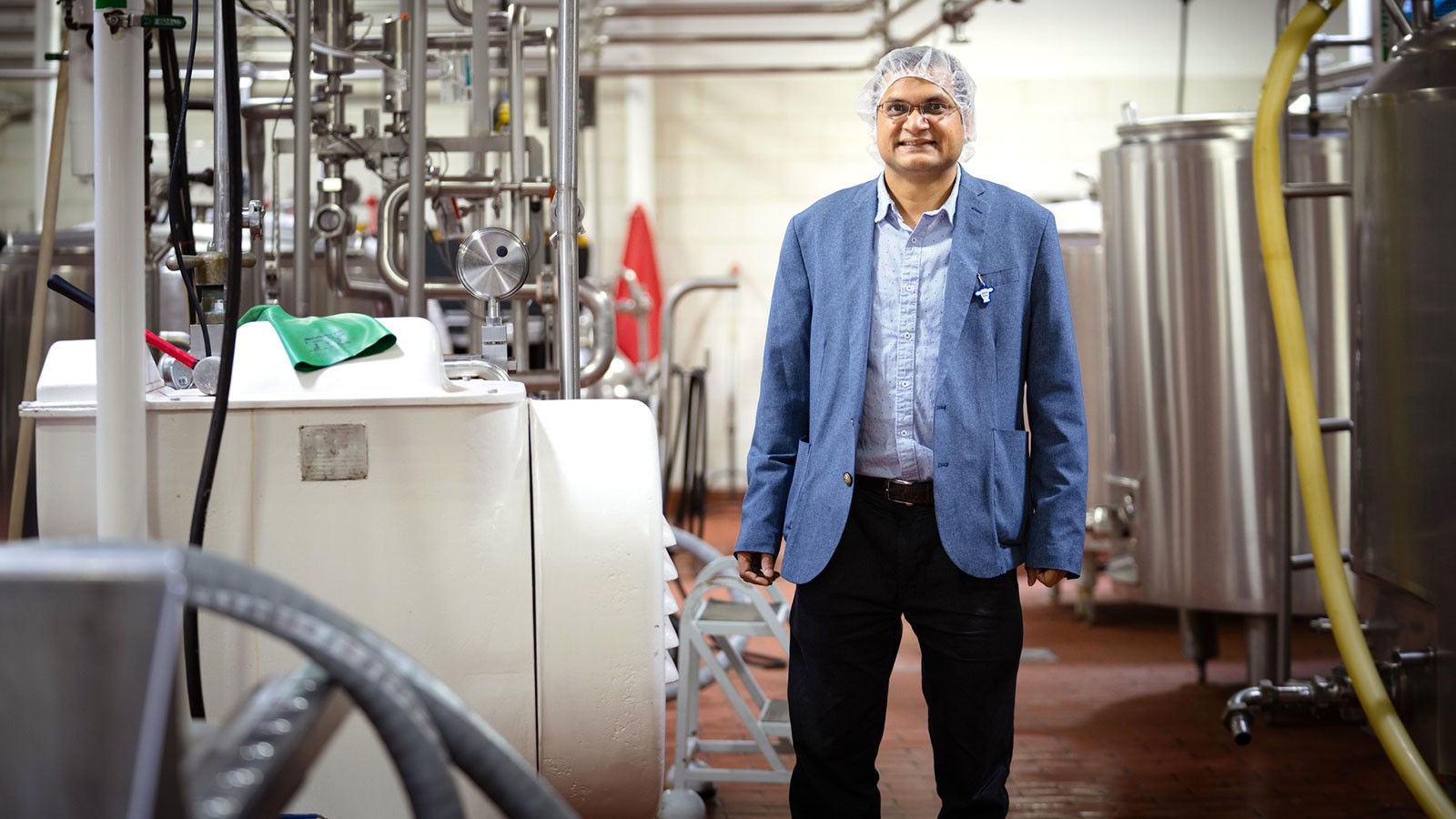USU's Prateek Sharma Awarded Research Grant to Study Dairy Processing
By Shelby Ruud Jarman |
Prateek Sharma
As the world grapples with producing food for a growing population, a team of researchers is innovating in the dairy industry with funding from the National Science Foundation.
Prateek Sharma, an assistant professor in USU’s Department of Nutrition, Dietetics and Food Sciences, focuses on developing strategies to improve the sustainability of dairy processing operations by reducing food processing waste, improving the quality of existing dairy products, and repurposing and upcycling dairy processing byproducts.
His research emphasizes understanding how material properties control the structure and function of dairy foods, discoveries that are as linked with physics and materials science as they are to food.
Another component of Sharma’s research involves creating innovative protein products that are shelf-stable, nutrient-dense, and impactful in the global market.
“This research will offer a model technological platform to the dairy industries in the Idaho and Utah region to solve problems related to product quality, shelf-life testing, and making use of what are now waste streams,” Sharma said.
The research project is based at Boise State University and Sharma collaborates with researchers there. Specifically, Sharma will help the team to develop advanced manufacturing technologies, new product prototypes for infants and elderly populations, and to understand the physical properties of ingredients as they are processed.
The $75,000 research grant supporting the work is part of a larger $11 million investment to address challenges to food and nutrition security. Sharma’s project was one of 16 selected for its potential to develop technologies, tools, and approaches to combat challenges related to population health, climate change, and the nutritional needs of vulnerable and disadvantaged communities.
“This research will help create a dairy protein research and innovation hub that will serve as a one-stop shop to generate solutions for problems that food production faces from milk to consumer products,” he said. “Our multi-disciplinary team is addressing industry challenges and developing technologies and practices we need to feed an exponentially growing world population and achieve carbon-neutral climate goals by 2050.”
By 2050, the world's population is anticipated to increase to an estimated 9.7 billion people, with a corresponding increase in food demands by 60%, according to the United Nations Department of Economic and Social Affairs
"New technologies could play an important role in ensuring that individuals have access to food and water in the coming decades," said Erwin Gianchandani, NSF assistant director for Technology, Innovation and Partnerships. "We are investing today and have the potential to help the most vulnerable Americans and billions of people worldwide."
The NSF project’s first phase of funding is provided for nine months for developing prototypes with a solid concept that can be submitted to qualify for the second phase for multimillion-dollar funding for another three years.
WRITER
Shelby Ruud Jarman
Writer
College of Agriculture and Applied Sciences
208-705-2282
shelby.ruud@usu.edu
CONTACT
Prateek Sharma
Assistant Professor, Food Scientist
Department of Nutrition, Dietetics and Food Sciences
435-797-0791
prateek.sharma@usu.edu
TOPICS
Society 504stories Grants 228stories Agriculture 225stories Food 168stories Global 42storiesComments and questions regarding this article may be directed to the contact person listed on this page.







